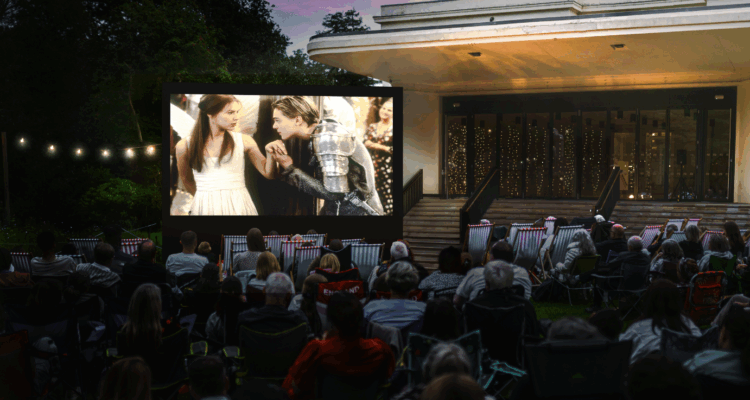Welcome to the Reading Revolution, Frank!
Frank Field’s suggestion in today’s Times that English literature might be used to help people learn to be good parents is typically radical, conservative, and zany. And he is quite right: huge swathes of literature are about parents, children, parenting, growing up, and getting over being brought up by whoever it was... they do tend to f***k you up, your Mum and Dad, as Larkin says. But let’s not forget the other side of the coin too – I love Adrian Mitchell’s rebuttal ‘They tuck you up, your Mum and Dad’.
A similar both sides of the same feeling comes from reading William Blake’s poem ‘Infant joy’ alongside his ‘Infant sorrow’. Mr Field says in an interview in the current issue of The Reader that mistakes, political, social, personal – come from not allowing complexity: ‘the heresies of all time are not the preaching of untruth; they are usually the preaching of a single truth without being buttressed by another truth.’ He’s right again, and I’m glad to say that that buttressing one truth by another – sometimes diametrically opposed - is exactly what literature does for us. No wonder reading, like breakfast, helps brain formation.
So we’re ready, Frank, when called to create reading for pleasure programmes for parents! Four years ago, Kerry Hughes, a young single parent who worked for The Reader Organisation put together a collection of readings for parents involved in our Get Into Reading project. Texts ranging from Carol Ann Duffy’s ‘Before You Were Mine’ to Charles Dickens’ Dombey and Son (one of the best books about parent child relationships ever written, connecting bad parenting to bad business practice, too: you’d like it, Frank) and it’s not just English literature, either: Chinua Achebe’s Things Fall Apart , Tolstoi’s Family Happiness , Theodore Roethke’s poem ‘My Papa’s Waltz’.
When are we going to realise that ‘literature’ is a technology for the brain to brain, heart to heart transplant of useful human information? Reading is an evolutionary tool, and great books are there not for syllabi and exams, but for personal, human and social use. There are many great poems about parenthood/childhood. Coventry Patmore’s ‘The Toys’, is onesuch. You may need to translate it out of a Victorian Christian sensibility. But it’s worth the effort involved in such translation.
The Toys
My little son, who looked from thoughtful eyes
And moved and spoke in quite grown-up wise,
Having my law the seventh time disobeyed,
I struck him and dismissed
With hard words and unkissed,
His Mother, who was patient, being dead.
Then, fearing lest his grief should hinder sleep
I visited his bed,
But found him slumbering deep,
With darkened eyelids, and their lashes yet.
From his late sobbing wet.
And I, with moan,
Kissing away his tears, left others of my own;
For, on a table drawn beside his head,
He had put, within his reach,
A box of counters and a red-veined stone,
A piece of glass abraded by the beach,
And six or seven shells,
A bottle with bluebells,
And two French copper coins, ranged there with careful art,
To comfort his sad heart.
So when that night I prayed
To God, I wept, and said:
Ah, when at last we lie with trancèd breath,
Not vexing Thee in death,
And Thou rememberest of what toys
We made our joys,
How weakly understood
Thy great commanded good,
Then, fatherly not less
Than I whom Thou hast moulded from the clay,
Thou’lt leave Thy wrath, and say,
“I will be sorry for their childishness.”Coventry Patmore
One of my favourites, David Constantine’s poem ‘New Year Behind the Asylum’, featured in Kerry’s wonderful collection, and David Constantine won’t mind I’m sure that I’m going to reprint it here. He's in the revolution, too.
New Year Behind the Asylum
There was the noise like when the men in droves
Are hurrying to the match only this noise was
Everybody hurrying to see the New Year in
In town under the clock but we, that once,He said would I come our usual Saturday walk
And see it in out there in the open fields
Behind the asylum. Even on sunny days
How it troubled me more and more the nearer we gotAnd he went quiet and as if he was ashamed
For what he must always do, which was
Go and grip the bars of the iron gates and stand
Staring into the garden until they saw him.They were like the animals, so glad and shy
Like overgrown children dressed in things
Handed down too big or small and they came in a crowd
And said hello with funny chunnering noisesAnd through the bars, looking so serious,
He put his empty hand out. But that night
We crept past quickly and only stopped
In the middle of the empty fields and thereWhile the clock in the square where the normal people stood
And all the clocks in England were striking twelve
We heard the rejoicings for the New Year
From works and churches and the big ships in the docksSo faint I wished we were hearing nothing at all
We were so far away in our black fields
I felt we might not ever get back again
Where the people were and it was warm, and thenCame up their sort of rejoicing out of the asylum,
Singing or sobbing I don’t know what it was
Like nothing on earth, their sort of welcoming in
Another New Year and it was only thenWhen the bells and the cheerful hooters couldn’t be heard
But only the inmates, only the poor mad people
Singing or sobbing their hearts out for the New Year
That he gripped me fast and kissed my hairAnd held me in against him and clung on tight to me
Under a terrible number of bare stars
So far from town and the lights of house and home
And shut my ears against the big children cryingBut listened himself, listened and listened
That one time. And I’ve thought since and now
He’s dead I’m sure that what he meant was this:
That I should know how much love would be needed.David Constantine
Share
Related Articles

Open Air Cinema FAQ’s
If you were able to snap up tickets to our brand new Open Air Cinema, check below for any queries…

New Liverpool open air cinema brings movies to the Mansion
NEW FOR 2025: Eight handpicked films will hit the big screen in Calderstones Park this summer as national Shared Reading…

A breath of fresh air! This summer’s outdoor and cultural events at our Calderstones Park home
The Reader serves up a giant scoop of summer arts and entertainment from three special summer garden parties with special…


